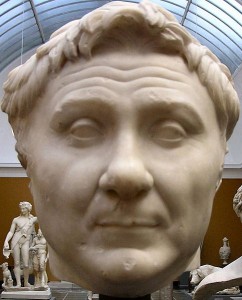(Image Attribution: By adrian8_8 [CC-BY-2.0 (http://creativecommons.org/licenses/by/2.0)], via Wikimedia Commons)
– Keira Constable (LLB Law, Newcastle University) k.a.t.constable@newcastle.ac.uk
With the 2014 Winter Olympics having just finished, I still wonder why the International Olympic Committee (IOC) chose to have these high-profile games in Sochi, Russia. Aside from the outrageous laws that were passed concerning gay propaganda, and the dangerously uncompleted accommodations for the press and tourists, Russia is still one of the largest source countries for trafficking in persons (TIP); specifically the trafficking of young women and girls. And while TIP occurs in every country around the world, Russia has been particularly lax in enforcing it’s laws on human trafficking, to the point where the U.S. Department of State’s Trafficking in Person’s Report 2012 labeled it as Tier 2 on the watch list, which basically means the country has legislation in place, but the current laws aren’t doing much to suppress TIP. I’m sure a country’s track record in combatting human trafficking doesn’t even appear on the radar when the IOC chooses where it will host the upcoming Olympic Games, perhaps it should be a factor for upcoming games.
Large international sporting events draw in massive amounts of people – athletes, media, and tourists alike. While tourist money does affect the local economy in many positive ways, it is also proven that tourist dollars can be used for evil, for instance, buying a pre-teen girl for a couple of hours; something that if one were to get caught doing in one’s home country, they would be criminally charged and thrown in jail. The sad fact of the matter is, sporting events such as the Olympics drive up the demand, and supply, of trafficked victims and if the host country’s TIP laws are already not up to international standards, how can we (the international community) help the victims of such a terrible crime, if we are the ones perpetuating the demand?
In 2000, the United Nations Office on Drugs and Crime (UNODC) created the Protocol to Prevent, Suppress and Punish Trafficking in Persons, Especially Women and Children which defined what TIP as the “recruitment, transportation, transfer, harbouring or receipt of persons, by means of the threat or use of force or other forms of coercion, of abduction, of fraud, of deception, of the abuse of power or of a position of vulnerability or of the giving or receiving of payments or benefits to achieve the consent of a person having control over another person, for the purpose of exploitation. Exploitation shall include, at a minimum, the exploitation of the prostitution of others or other forms of sexual exploitation, forced labour or services, slavery or practices similar to slavery, servitude or the removal of organs.” (United Nations Office on Drugs and Crime, 2000) Russia signed the protocol in 2000 and ratified it into domestic law in 2004. This (relatively) quick ratification was probably due to the government knowledge of the widespread abject poverty after the collapse of the Soviet Union in the early 1990s, which would lead people to try to make money by any means. Also, the lifting of the Iron Curtain freed the movement of peoples across former Soviet countries’ borders, either through legal or illegal means.
The Winter Olympic Games may not bring as many spectators as the Summer games, but they still bring a surge in tourism to the host city. In 2010, the Winter Olympic Games were hosted in the Canadian city of Vancouver, British Columbia where, according to the CBC (Canadian Broadcasting Corporation), “The [Canadian Tourism Commission] said the value of Canada’s tourism brand in 2010 was $132 billion, which it said was a 7.2 per cent increase compared with the pre-Olympics valuation.” (CBC, 2011) In countries with strict immigration laws, traffickers use these events as an easy way to obtain visas and masquerade their victims as spectators. (Hayes: Human Trafficking for Sexual Exploitation at World Sporting Event, 1106). But what about places like China, or Russia – two very significant source countries for human trafficking victims?
According to the Consortium for Applied Research on International Migration for the Eastern Neighbourhood of the European Union (CARIM-East) report on Russia, an estimated 30,000 to 60,000 women are trafficked out of Russia each year. This makes it one of the largest source countries on the planet. These women, for the most part, are trafficked into sexual slavery. While there is obviously no data to reflect the impact on sex trafficking in Russia in relation to the Winter Olympics as it is too early to tell, one can easily assume that traffickers would keep their girls local for the games. Not only is it less expensive for traffickers, since they don’t need to pay for plane tickets to send these women to another country, but they have thousands of people flocking to a country where sex laws are less strict than their own (for the most part) which drives the local demand way, way up, which, in turn, enables the traffickers to jack up the prices for pimping out these women – money that these women will never see themselves.
Taking all this into consideration, perhaps the IOC should start taking into account the impact that sex trafficking has on a country before that it is chosen to host one of the world’s biggest sporting events. While no country is immune to TIP, there could be bigger sanctions in place for those countries that fail to have proper legislation, or enforcement of existing legislation, concerning human trafficking, and are being considered to host an international sporting event. Despite the Olympics only just ending in Russia, from the notoriety of it being a source country, we can easily assume that the exploitation of women and children for sexual purposes in that country has drastically increased this year due to the Olympics and its poor reputation in regards to TIP. From this, the IOC needs to look beyond the gold medals and the bright lights of the pistes and racetracks, to the broader impact the Olympics has on a host country and its people – namely, the women and children that fall prey to human traffickers and are sold to rich tourists to be used as sex slaves.




